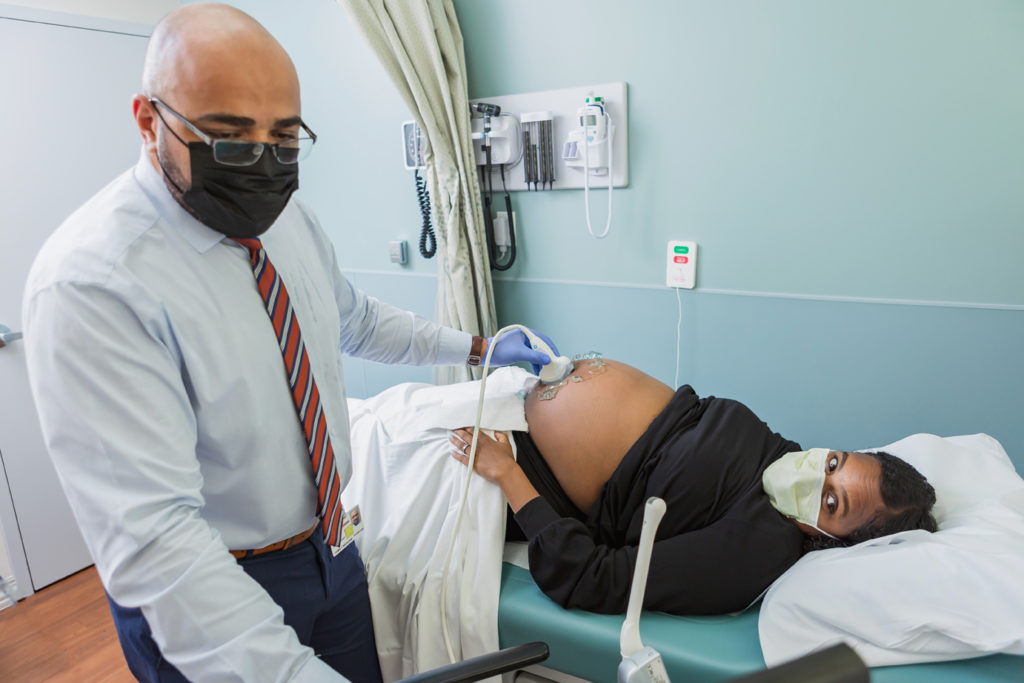
Whether you’ve had an ultrasound in the past, are preparing for one due to pregnancy or health concerns, or are simply curious about this diagnostic procedure, the Premier Family Medicine Associates at PVHC are here to help guide you through it.
Your health matters to us. Utilizing ultrasound imaging and expert medical review, you can get a complete picture of your health during pregnancy or in the instance of a medical evaluation, which can help with your overall treatment and care plan to get you on the road to your healthiest self.
Let’s explore what an ultrasound is and what it’s used for.
A diagnostic ultrasound, or sonography, is an advanced medical imaging method that utilizes sound waves to produce images of the inside of your body. This process involves using a wand-shaped ultrasound device, called a transducer, along with warm water-soluble ultrasound gel applied to the outside of the body. Because ultrasound waves have a difficult time traveling through the skin when there is extra air present, the gel works in a way to block air from forming between the probe and your skin.
Ultrasounds are performed as outpatient procedures and cause no pain. In some cases, especially during early pregnancy, the transducer may need to be placed inside the body for best imaging results, which may feel uncomfortable to the patient.
Ultrasounds typically last less than an hour. After your visit, you can return to regular activity. A radiologist will review your results and share them with your physician, who will share them with you within a week.
The most common time that ultrasounds are used is during pregnancy.
Evaluating a baby in utero is essential in determining whether they are thriving. Ultrasounds during pregnancy can also detect things such as heart rate, oxygen levels, clarity of the umbilical cord connection, and even birth deformities before birth.
Other instances where ultrasounds may be necessary include:
Ultrasound frequency directly depends on your specific health and wellness needs.
During a normal pregnancy, women typically receive two ultrasounds. The first is to confirm the due date, and the second is to ensure the health of the baby and confirm the gender. In instances of a high-risk pregnancy, expectant mothers may require an ultrasound as frequently as every week leading up to birth.
It is important to speak with your doctor to discuss your specific health needs and ultrasound requirements.
There are no significant risks associated with ultrasound imaging.
At PVHC, we pride ourselves on offering advanced imaging options for all of your radiology needs. These services allow for the detection and analysis of various health conditions to provide fast, efficient and accurate diagnoses to our patients. To learn more about ultrasounds, or to schedule yours, contact us today.




